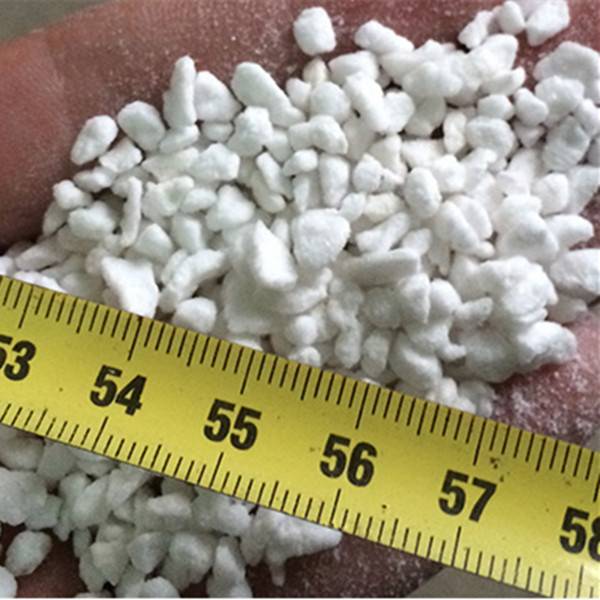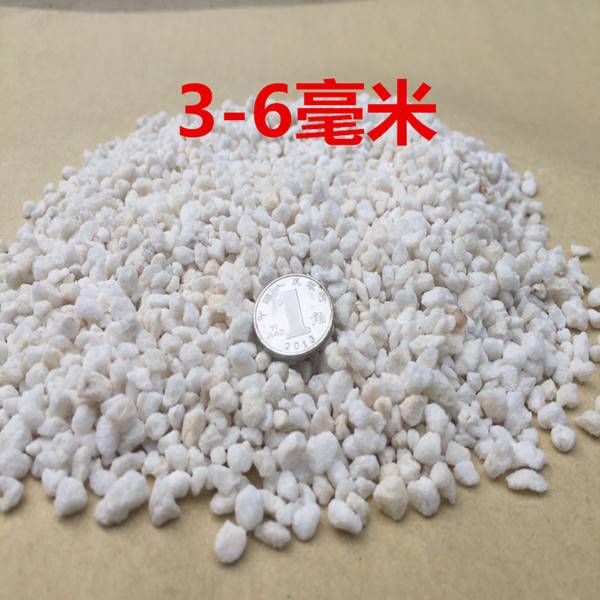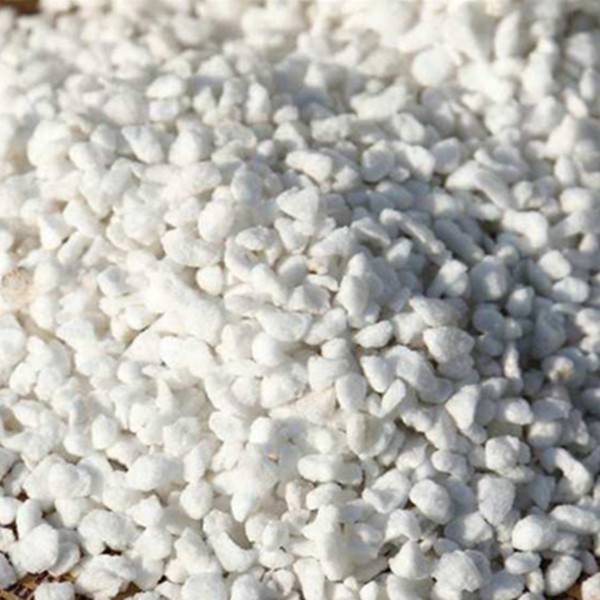Understanding Soilless Growing Media in Modern Horticulture
In the rapidly evolving landscape of modern agriculture, the transition towards sustainable, efficient, and high-yield cultivation methods has become paramount. Central to this paradigm shift is the widespread adoption of soilless growing media, which offer unparalleled control over nutrient delivery, water management, and disease prevention. Among the various substrates available, Soilless Growing Media Horticulture Expanded Perlite stands out as a superior choice due to its unique physical and chemical properties. This lightweight, inert, and sterile volcanic glass provides an optimal root environment, enhancing aeration and drainage while simultaneously retaining adequate moisture and nutrients for robust plant growth. The demand for such advanced horticultural substrates is driven by global trends towards urban farming, vertical agriculture, and the need for consistent crop quality irrespective of traditional soil limitations or environmental stressors. Businesses in the B2B sector, from large-scale commercial greenhouses to specialized hydroponic system manufacturers, increasingly rely on high-quality Soilless Growing Media Horticulture Expanded Perlite to maximize their operational efficiency and produce healthier, more productive yields. Its exceptional versatility makes it an indispensable component in a diverse array of growing applications, from seed starting and propagation to large-scale hydroponic and aquaponic systems, reflecting its critical role in the future of food production and ornamental plant cultivation.
The burgeoning interest in controlled environment agriculture (CEA) further underscores the significance of advanced soilless media like Soilless Growing Media Horticulture Expanded Perlite. With precise control over temperature, humidity, light, and nutrient delivery, CEA systems can achieve extraordinary growth rates and resource efficiency. However, the success of these systems hinges critically on the performance of the growing substrate. Perlite, characterized by its high porosity and low bulk density, facilitates excellent oxygen exchange around the root zone, a vital factor for preventing root rot and promoting vigorous root development, particularly in recirculating hydroponic systems where water saturation can be a concern. Its neutral pH, typically ranging between 6.5 and 7.5, ensures compatibility with a broad spectrum of crops and nutrient solutions, minimizing the need for extensive pH adjustments. Furthermore, perlite’s inert nature means it does not contribute to or deplete essential nutrients, allowing cultivators complete control over their feeding programs. This consistency and predictability are invaluable for commercial growers striving for uniform crop quality and predictable harvest cycles. The global market for soilless growing media is projected to continue its robust growth, with expanded perlite retaining its position as a preferred substrate due to its proven efficacy and economic viability for both small and large-scale horticultural enterprises.
The Manufacturing Process of Expanded Perlite: From Ore to Optimal Growth Medium
The production of Soilless Growing Media Horticulture Expanded Perlite involves a highly specialized thermal process that transforms raw perlite ore into its lightweight, porous form. The journey begins with the mining of naturally occurring perlite, a volcanic glass characterized by its unique property of expanding greatly when heated. Once extracted, the crude perlite ore undergoes a meticulous crushing and screening process to achieve specific particle size distributions. This pre-processing step is crucial as it dictates the final product’s physical characteristics, such as water retention capacity and aeration. Following sizing, the prepared perlite ore is fed into a specially designed furnace, where it is rapidly heated to temperatures exceeding 850°C (1560°F). At this critical temperature, the trace amounts of water entrapped within the perlite's structure vaporize and expand, causing the perlite particles to pop like popcorn. This rapid expansion increases the volume of the individual particles by up to 20 times their original size, creating an intricate network of tiny, air-filled, closed cells. This unique cellular structure is what imparts expanded perlite with its exceptionally low bulk density, high porosity, and excellent insulation properties, making it an ideal medium for horticultural applications where precise control over root zone conditions is paramount. The entire manufacturing process is carefully monitored to ensure consistent quality, with adherence to stringent inspection standards.

Post-expansion, the expanded perlite is cooled and then further processed, often involving additional screening to sort it into various grades based on particle size. These grades are specifically tailored for different horticultural needs, ranging from fine grades suitable for seed starting and propagation to coarser grades ideal for hydroponic systems and soil conditioning. Quality control at this stage is critical, with manufacturers often adhering to international standards such as ISO 9001 for quality management systems, ensuring that each batch of Soilless Growing Media Horticulture Expanded Perlite meets specific technical parameters for bulk density, water holding capacity, and pH neutrality. The inert nature of expanded perlite means it is free from pathogens, weeds, and harmful chemicals, providing a sterile environment that is crucial for young plants and susceptible crops. Its remarkable stability ensures a long service life within growing media, resisting decomposition and maintaining its structural integrity over extended periods, unlike organic substrates that break down over time. This longevity translates into economic benefits for commercial growers by reducing the frequency of substrate replacement. The primary applicable industries for expanded perlite are clearly agriculture, horticulture, and landscaping, where its advantages—such as superior aeration, excellent drainage, and uniform moisture distribution—directly contribute to enhanced crop vitality and yields, enabling more sustainable and efficient cultivation practices across diverse climatic conditions.
Technical Parameters and Performance Benchmarks
The efficacy of Soilless Growing Media Horticulture Expanded Perlite as a horticultural substrate is quantifiably defined by its specific technical parameters. Understanding these parameters is crucial for commercial growers and agricultural engineers to optimize growing conditions and predict plant performance accurately. Key parameters include bulk density, which typically ranges from 60 to 120 kg/m³, significantly lighter than traditional soil, facilitating easier handling and reduced shipping costs. Its water holding capacity (WHC) is excellent, often reaching 30-50% by volume, allowing it to retain moisture while simultaneously promoting superior drainage. This dual characteristic prevents waterlogging and ensures adequate oxygen supply to the roots, mitigating the risk of anaerobic conditions that can lead to root rot. Air porosity, another critical metric, commonly falls between 50% and 70%, guaranteeing exceptional root zone aeration essential for vigorous root respiration and overall plant health. The pH of expanded perlite is inherently neutral, usually between 6.5 and 7.5, which is ideal for the uptake of most essential plant nutrients, simplifying nutrient solution management for cultivators. Furthermore, its Electrical Conductivity (EC) is virtually zero, meaning it does not add unwanted salts to the growing environment, providing a clean slate for precise nutrient delivery systems.

The chemical inertness of Soilless Growing Media Horticulture Expanded Perlite ensures it does not react with nutrient solutions or leach any undesirable substances into the growing environment. This stability is vital for maintaining consistent nutrient concentrations and preventing toxicity issues. Its sterility is another significant advantage; being an inorganic material produced at high temperatures, it is naturally free from weed seeds, pests, and disease pathogens, reducing the need for chemical treatments and promoting healthier plant development from the outset. Particle size distribution is also a crucial technical parameter, with different grades offering varying capillary action and drainage properties. For instance, fine-grade perlite offers higher water retention, making it suitable for seed germination, while coarse-grade perlite provides better aeration and drainage, preferred for hydroponic systems. Rigorous testing and adherence to horticultural industry standards ensure that these parameters are consistent across batches, providing reliability for large-scale operations utilizing Soilless Growing Media Horticulture Expanded Perlite. Manufacturers often provide Certificates of Analysis (CoA) with each shipment, detailing specific physical and chemical properties, thereby instilling confidence and facilitating precise horticultural planning for B2B clients who prioritize performance and consistency in their growing operations.
Key Technical Specifications for Horticulture Expanded Perlite
Versatile Applications and Unrivaled Advantages
The versatility of Soilless Growing Media Horticulture Expanded Perlite makes it an indispensable component across a multitude of horticultural applications. In seed starting and propagation, its fine grades provide a sterile, stable, and uniformly moist environment that promotes rapid germination and strong, healthy root development in delicate seedlings. For rooting cuttings, perlite’s excellent aeration prevents damping-off disease while its moisture retention supports new root growth. In hydroponic systems, perlite is a preferred substrate due to its inertness, allowing growers complete control over nutrient delivery without chemical interactions from the media itself. It excels in both ebb-and-flow and drip irrigation systems, providing the necessary support and aeration for robust root systems. Commercial greenhouses extensively utilize perlite as a stand-alone medium or blended with other substrates like coco coir or peat moss to enhance their physical properties. For instance, incorporating perlite significantly improves the drainage and aeration of heavier mixes, preventing compaction and ensuring optimal oxygen availability to the roots, which is critical for high-yield crops. Its lightweight nature also makes it ideal for rooftop gardens, green walls, and other urban agriculture initiatives where structural load is a concern, promoting innovative and sustainable farming solutions in dense urban environments.

Beyond its diverse applications, the technical advantages of Soilless Growing Media Horticulture Expanded Perlite are substantial and directly translate into tangible benefits for commercial operations. Its primary advantage lies in its superior aeration and drainage capabilities, which are critical for preventing anaerobic conditions and promoting optimal root respiration. This leads to healthier, more vigorous plants less susceptible to root diseases. Despite its excellent drainage, perlite also boasts a significant water holding capacity, acting as a reservoir for moisture and nutrients, reducing the frequency of irrigation and improving water use efficiency—a vital consideration in water-stressed regions. The inert and sterile nature of perlite eliminates concerns about soil-borne diseases, pests, and weed seeds, contributing to a cleaner growing environment and reducing the reliance on chemical treatments. Its stable physical structure means it does not decompose or compact over time, maintaining optimal conditions for root growth throughout the crop cycle, unlike organic media that degrade. This long-term stability ensures consistent performance and reduces the need for frequent media replacement, offering significant cost savings for large-scale agricultural operations. The cumulative effect of these advantages is consistently higher yields, improved crop quality, and greater operational efficiency, establishing Soilless Growing Media Horticulture Expanded Perlite as a cornerstone of modern, high-tech horticulture.
Ensuring Trust: Quality Assurance, Customization, and Support
For B2B clients seeking reliable and high-performance Soilless Growing Media Horticulture Expanded Perlite, trust is built on a foundation of rigorous quality assurance, flexible customization options, and robust customer support. Reputable manufacturers adhere to stringent quality management systems, such as ISO 9001, ensuring that every batch of expanded perlite meets predefined technical specifications for particle size, bulk density, pH, and water holding capacity. This commitment to quality is often evidenced by comprehensive Certificate of Analysis (CoA) provided with each shipment, detailing the product’s exact properties and verifying its purity and consistency. This transparency allows commercial growers to confidently integrate perlite into their precise cultivation protocols, knowing they can expect predictable and repeatable results. Furthermore, leading suppliers understand that horticultural needs are diverse, offering tailored solutions to meet specific project requirements. This might include custom particle size blends for specialized hydroponic systems, varying packaging sizes for different scales of operation, or even technical consultation on optimal perlite application methods for particular crop types. Such bespoke services demonstrate a deep understanding of client needs and reinforce a manufacturer's commitment to partnership rather than just product supply.
Beyond product specifications, the operational aspects of supply, delivery, and post-sales support are paramount in establishing trustworthiness. A reliable manufacturer will offer clear communication regarding lead times and delivery schedules, ensuring that large-scale agricultural projects receive their bulk orders of Soilless Growing Media Horticulture Expanded Perlite precisely when needed, minimizing operational downtime. For example, a typical delivery cycle for bulk orders can range from 7 to 14 business days, depending on destination and customization requirements, with expedited options available for urgent needs. Furthermore, comprehensive customer support, including technical assistance for product integration and troubleshooting, is essential. This often extends to providing guidance on optimal nutrient solution compatibility or advising on storage conditions to maintain product integrity. A standard warranty for expanded perlite typically covers material quality and ensures it meets the agreed-upon specifications upon delivery, offering recourse in the rare event of a discrepancy. By prioritizing consistent product quality, offering flexible customization, ensuring reliable logistics, and providing responsive expert support, manufacturers build long-term relationships with their B2B clients, fostering an environment of mutual trust and contributing significantly to the success of their horticultural ventures.
Frequently Asked Questions (FAQ) about Expanded Perlite
Q1: What is the ideal particle size of Soilless Growing Media Horticulture Expanded Perlite for hydroponic systems?
For most hydroponic systems, including deep water culture (DWC) and nutrient film technique (NFT), a medium to coarse grade of expanded perlite (typically 3-6mm) is preferred. This size range offers an optimal balance between water retention and air porosity, ensuring that roots receive ample oxygen while maintaining consistent moisture. Finer grades might retain too much water, potentially leading to anaerobic conditions, while excessively coarse grades could dry out too quickly. However, specific system designs and crop requirements may necessitate slight variations, and manufacturers can provide guidance on selecting the most appropriate grade for bespoke hydroponic setups to maximize efficiency and yield for your commercial operations.
Q2: Can expanded perlite be reused in commercial growing operations, and how should it be disposed of?
While perlite is highly stable and does not decompose, its reuse in commercial operations depends on the risk of pathogen transmission. For high-value crops or where disease prevention is paramount, it is generally recommended to use fresh Soilless Growing Media Horticulture Expanded Perlite for each crop cycle to mitigate risks. If reuse is considered, thorough sterilization (e.g., steam sterilization) is imperative, but this can be costly and impractical for large volumes. Environmentally, expanded perlite is an inert, natural mineral, making its disposal relatively straightforward. It can be incorporated into landscaping, used as a soil amendment to improve drainage and aeration, or disposed of in general waste. It poses no environmental hazard, and its inorganic nature means it will not leach harmful chemicals into the soil or water tables, aligning with sustainable agricultural practices.
Q3: How does the lifespan of expanded perlite compare to other soilless media like rockwool or coco coir?
Expanded perlite boasts a virtually indefinite lifespan as a growing medium because it is an inert, inorganic mineral that does not decompose. Unlike organic substrates such as coco coir or peat moss, which break down over time, altering their physical properties and potentially releasing organic compounds, perlite maintains its structural integrity, porosity, and aeration capabilities consistently throughout its use. Rockwool, while also inorganic, can sometimes degrade slightly in structure over very long periods depending on its composition and exposure, though it is generally durable. This superior longevity of Soilless Growing Media Horticulture Expanded Perlite means it can theoretically be used for multiple crop cycles if sterilized, although for pathogen control, fresh media is often preferred by commercial growers. Its stability contributes to consistent performance and reduces the need for frequent media replacement, offering long-term economic advantages in large-scale cultivation.
Authoritative References
- Bunt, A.C. (1988). Media and Mixes for Container-Grown Plants: A Manual on the Preparation and Use of Substrates for Horticulture. Unwin Hyman.
- Raviv, M., & Lieth, J.H. (2008). Soilless Culture: Theory and Practice. Elsevier.
- Nelson, P.V. (2003). Greenhouse Operation and Management. Prentice Hall.
-
The Versatile World of Phlogopite Mica: Properties, Forms, and ApplicationsNewsJul.14,2025
-
The Versatile Applications of Calcined Mica: From Decoration to Industrial UseNewsJul.14,2025
-
The Role of Muscovite Mica in Industrial Insulation MaterialsNewsJul.14,2025
-
The Benefits of Using Expanded Clay Pebbles in Hydroponics and Soil GardeningNewsJul.14,2025
-
Innovative Applications of Mica Flake in Paints and CoatingsNewsJul.14,2025
-
Gardening Expanded Clay Usage: A Complete GuideNewsJul.14,2025
-
The Use of Natural Mica Powder in Skincare ProductsNewsJun.11,2025








